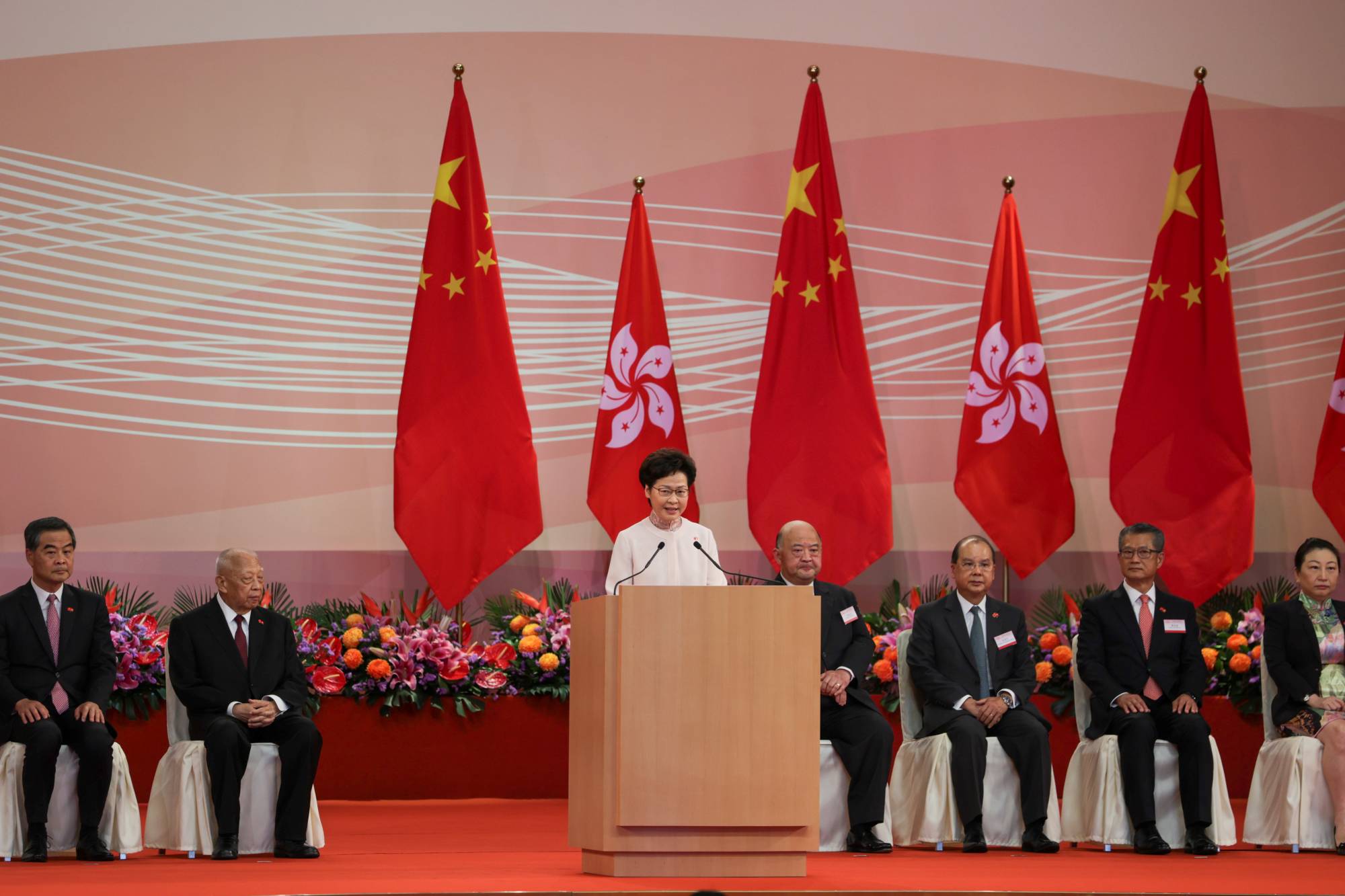Two unpopular leaders, two powerful backers. Pictures this week of Belarus leader Alexander Lukashenko beaming for the cameras, leaning in eagerly to address an impassive Russian president, evoked another pair 4,000 miles away and months earlier. Against a similar background of street unrest, Hong Kong’s Chief Executive Carrie Lam found support from China’s President Xi Jinping last year. It’s not a parallel that bodes well for Minsk’s burgeoning opposition.
Under pressure since claiming victory in a disputed election last month, and facing demonstrations that show no sign of fading, Lukashenko has turned to Vladimir Putin for succor. Moscow sees its smaller neighbor as a crucial, Russia-friendly buffer with Europe, and has no desire to see a popular uprising result in genuine democracy. Belarus’s leader, meanwhile, needs financial fortification and a hint of military support. Lam, too, received solace in Beijing last year during months of tumult and after a painful local election defeat. Both got what they wanted: a televised display of support to appease elites and security forces at home.
From the start, the crowds in Minsk learned from Hong Kong’s broad-based, leaderless campaign. They, too, were making demands of a system ill-equipped to compromise. The current stalemate between the opposition and Lukashenko looks familiar. Could Hong Kong, then, offer a hint of what may be next for Belarus, as the leadership digs in? It’s a path that includes more aggressive tactics by police and protesters, more government efforts to silence opponents, and economic stagnation.



















With your current subscription plan you can comment on stories. However, before writing your first comment, please create a display name in the Profile section of your subscriber account page.